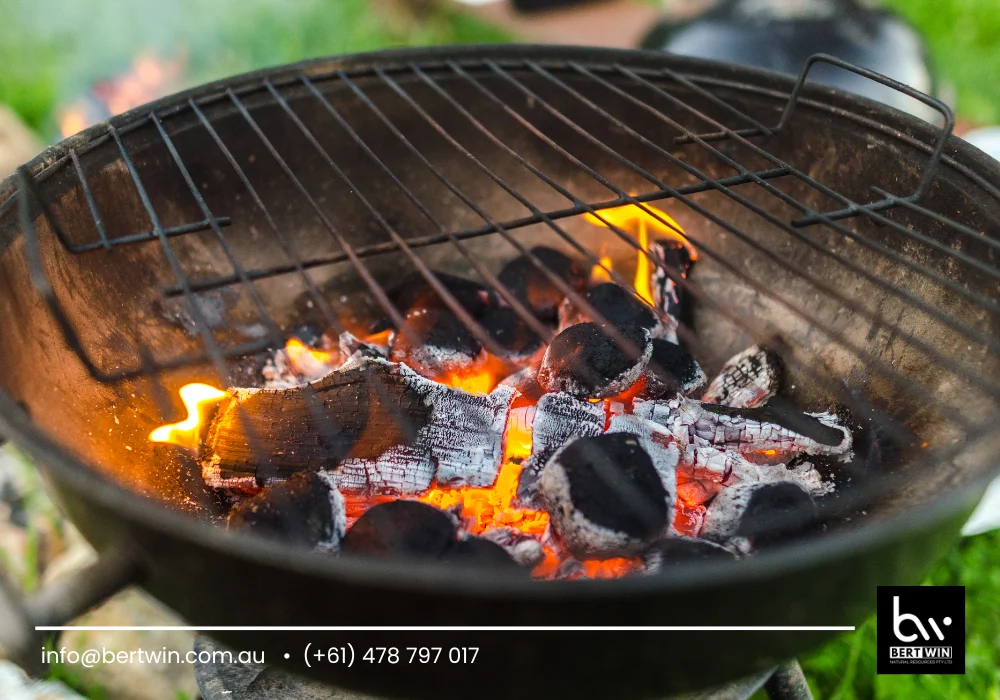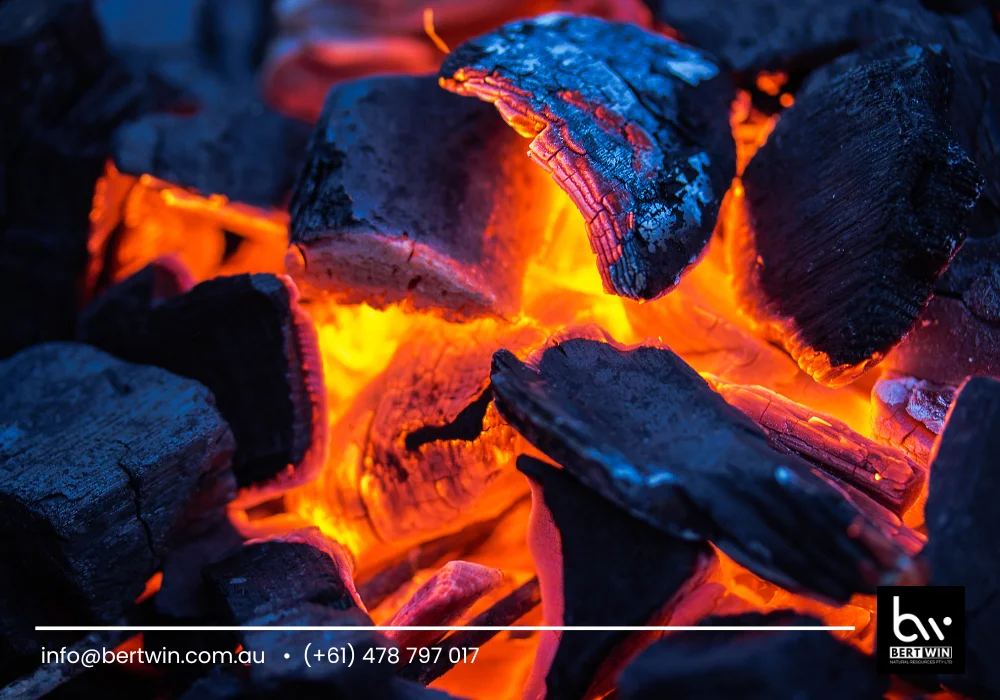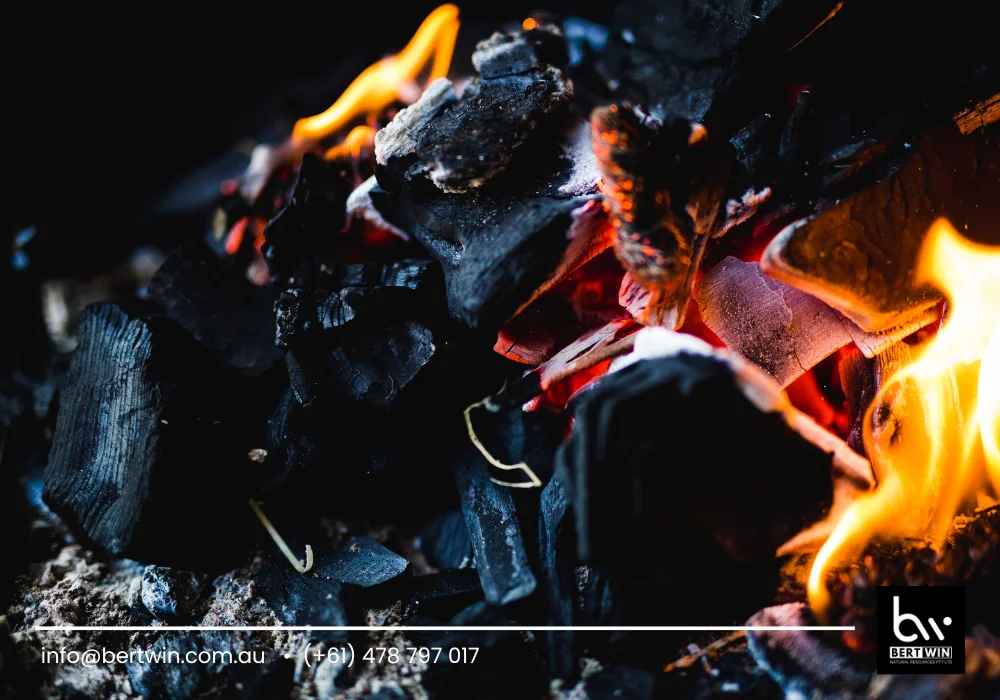Coconut charcoal for BBQ is quickly gaining popularity as a sustainable and efficient alternative to traditional charcoal options. As Australians increasingly seek environmentally friendly products, coconut charcoal for BBQ provides an excellent option for outdoor grilling. With its clean burn, longer heat retention, and eco-friendly properties, it’s becoming a preferred choice for both professional chefs and home barbecue enthusiasts. This article will explore the advantages of using coconut charcoal for BBQ, its environmental benefits, and why it’s the best choice for your next grilling session.

What is Coconut Charcoal for BBQ?
- Coconut charcoal for BBQ is produced by carbonizing coconut shells, which are a natural byproduct of the coconut industry. The shells are heated in a low-oxygen environment, turning them into charcoal with excellent heat retention and minimal ash production.
- Unlike traditional charcoal made from hardwood, coconut charcoal is renewable and offers an environmentally sustainable alternative to the more commonly used products in the BBQ industry.
- The high-density structure of coconut charcoal ensures that it burns longer and hotter, providing an efficient grilling experience without the need for frequent reloading.
Benefits of Using Coconut Charcoal for BBQ
- Longer Burn Time
- One of the primary benefits of coconut charcoal for BBQ is its long burn time. It burns hotter and longer compared to regular charcoal, allowing for more extended grilling sessions without needing to add more fuel.
- This makes it ideal for cooking large cuts of meat, slow-cooked dishes, or smoking food, where long, consistent heat is required.
- The extended burn time also makes it a more economical choice since you won’t need to keep replenishing the charcoal.
- Cleaner and More Efficient Burning
- Coconut charcoal for BBQ produces less smoke than traditional charcoal, creating a cleaner cooking environment. This is especially beneficial for grilling in suburban or urban areas, where air quality is a concern.
- It also produces very little ash, making the cleanup process easier and reducing the amount of waste created. The lower ash content also allows for better airflow, which leads to more even cooking.
- Minimal Odor and Pure Flavor
- Unlike some traditional charcoal, coconut charcoal for BBQ is virtually odorless when it burns. This means there’s less chance of the charcoal affecting the natural flavor of the food, providing a purer, more authentic BBQ experience.
- The absence of chemicals and synthetic additives further ensures that the taste of your grilled food is not compromised by any unpleasant odors or flavors.
- Eco-Friendly and Sustainable
- Coconut charcoal is made from coconut shells, which are often discarded as waste after the coconut is processed. By repurposing this waste material, coconut charcoal is a more sustainable choice compared to hardwood charcoal, which requires deforestation.
- Coconut charcoal for BBQ is a renewable resource, and its production has a significantly lower environmental impact compared to traditional charcoal manufacturing. Additionally, it is biodegradable and can be composted after use, further reducing waste.
- Higher Heat Efficiency
- Coconut charcoal for BBQ burns hotter than regular charcoal, making it ideal for high-heat grilling. It can reach temperatures up to 900°F (482°C), allowing you to sear steaks, burgers, and other meats to perfection.
- The higher heat efficiency also means that you can cook your food faster and more evenly, without the need for excess fuel.

How to Use Coconut Charcoal for BBQ
- Preparation and Lighting
- Start by arranging the coconut charcoal in your BBQ grill or smoker, ensuring that there is adequate airflow to facilitate efficient combustion.
- Like traditional charcoal, coconut charcoal can be lit using a chimney starter, lighter fluid, or an electric starter. Allow the charcoal to heat up for around 15-20 minutes until it turns white and ashy before you start cooking.
- Temperature Control
- To achieve the perfect cooking temperature, adjust the amount of coconut charcoal in your BBQ grill. For high-heat cooking, use a larger amount of charcoal, while for slower cooking or smoking, you can use a smaller amount and allow the heat to gradually build up.
- You can control the temperature by adjusting the vents on your grill, ensuring that the airflow is regulated to keep the temperature consistent.
- Cooking Techniques
- Coconut charcoal for BBQ is perfect for direct and indirect cooking methods. For direct grilling, place the food directly over the charcoal, while for indirect cooking or smoking, use the heat around the edges of the grill to cook the food slowly.
- Experiment with the amount of charcoal and airflow to find the optimal temperature for your cooking needs.
Applications of Coconut Charcoal for BBQ
- Home Grilling
- Coconut charcoal for BBQ is perfect for backyard BBQs, providing high heat and efficiency for grilling meat, vegetables, or seafood. Its long burn time ensures that you don’t need to worry about constantly adding more charcoal, giving you more time to enjoy your meal with friends and family.
- It’s especially beneficial for low and slow cooking methods like smoking ribs or slow-roasting a whole chicken, as it maintains consistent heat for hours.
- Commercial BBQ and Catering
- For professional chefs and catering businesses, coconut charcoal for BBQ offers a consistent and high-quality grilling experience that can help elevate the flavor of their food. Its clean burn and efficiency make it ideal for large-scale cooking operations, where reliability and consistency are critical.
- Many high-end BBQ restaurants and food festivals in Australia have adopted coconut charcoal for its superior performance and environmental benefits.
- Camping and Outdoor Adventures
- Coconut charcoal is a great choice for camping trips and outdoor adventures. It’s easy to transport, burns efficiently, and produces less smoke, making it ideal for grilling in nature without disturbing the surrounding environment.
- It’s also a safer option when grilling in areas where open fires may be restricted, as it produces less ash and requires less maintenance.

Conclusion
Coconut charcoal for BBQ is a fantastic option for those looking to make their grilling experience more sustainable, efficient, and enjoyable. Its long burn time, cleaner burn, and eco-friendly nature make it a superior choice for both home grilling and professional BBQ setups. By choosing coconut charcoal, you can enhance the flavor of your food while reducing your environmental footprint, making it an excellent choice for Australian BBQ enthusiasts and environmentally conscious consumers.
For further information, you may contact WhatsApp at (+61) 478797017 or via email at info@bertwin.com.au.
